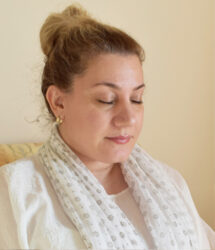New Report Focuses on Women’s Risks for Stroke

I was happy to see that there was a recent increased focus on women and their risk of stroke, as gender is a factor that can significantly affect risk, prevention, treatment and compliance.
A stroke is either a sudden blockage of blood flow to the brain or sudden bleeding in the brain. Strokes are the leading cause of death in the USA but the Centers for Disease Control and Prevention estimates that 80% of strokes are preventable.
New report focuses on women and stroke prevention
On October 22, the NY Times reported that new guidelines for preventing stroke focus significantly, for the first time, on women’s risks. The Times quotes Dr. Brian Snelling, director of the stroke program at Baptist Health South Florida’s Marcus Neuroscience Institute: “Prior guidelines tended to be sex-agnostic. Now we have more data about sex-specific subgroups, so you’re able to more appropriately screen those patients.”
“We’re seeing much more complex patients with stroke, and much younger patients with strokes,” remarks Dr. Cheryl Bushnell, the lead writer of the new report and a vice chair of research for the department of neurology at Wake Forest University School of Medicine.
The new report notes that pregnancy and the postpartum period after childbirth are critical because then the risk of stroke is about triple that of nonpregnant women at the same ages. A woman with preeclampsia—serious pregnancy-related high blood pressure—is four times more at risk than a pregnant woman without preeclampsia.
The report also states, “Other risk factors that are unique to women are early menopause, before age 45, and endometriosis, a condition that occurs when endometrial tissue grows outside the uterus…. Hormonal contraception that includes both estrogen and progestin, and oral estrogen hormone therapy after age 59, also may increase the risk of a stroke.”
The Transcendental Meditation technique can prevent stroke
It’s wonderful that the scientific and medical communities are giving more time to the study of stroke in women, because stroke is frighteningly dangerous, yet miraculously preventable. I urge you to read my article of January 12th, A Strike Against Stroke, in which I summarized some of the online literature on symptoms, risks, and recommendations, and wrote:
“The personal experiences of many women as well as scientific research have shown that many stroke risk factors—including smoking, alcohol abuse, hypertension, atherosclerosis, unhealthy eating impulses, and inactivity due to fatigue—can be reduced or eliminated as a result of the practice of the deeply restful, stress-busting Transcendental Meditation technique.”
With the tool of the TM technique, a woman has the ability at will to deeply rest her body, resulting in normalized blood pressure, reversal of atherosclerosis, reduced inflammation, stress reduction, and a diminished inclination to smoke and overeat. Some of the outstanding sources of recognition of the powerful benefits of TM are:
- A randomized, controlled clinical trial, published in the journal Stroke in March 2000, showed that the daily practice of the Transcendental Meditation technique was associated with or decreased narrowing of the arteries in the heart and brain in high-risk hypertensive adults, thereby decreasing the risk of heart attack and stroke.
- Research funded by the National Institutes of Health found that regular TM practice rewarded the meditators with a 66% greater reduction in heart attacks, strokes, and mortality than non-meditating controls.
- A 2013 American Heart Association scientific statement reported that the TM technique lowers blood pressure and is associated with substantially reduced rates of stroke.
Next step
I’m going to say to you what I’ve said to friends and relatives: You are important to people around you and they want you to be well. You want to be well. Please read my article of January 2024 which will help you to make a list of the behaviors (smoking, lack of exercise, etc) that you need to address–now. Contact a local certified TM teacher to teach you the TM technique so you can significantly reduce hypertension and other stroke risk factors. Not after the holidays, not next year, now. Thank you.
Prevention is Key. Learn the TM technique by contacting a Certified Teacher.
About the Author
Janet Hoffman is the executive director of TM for Women Professionals, a division of TM for Women in the USA





